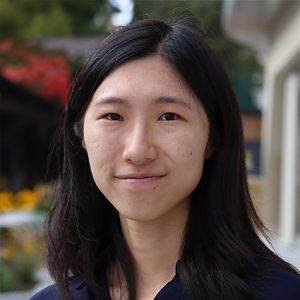Quantitative Analysis and Research Network for Care
The Quantitative Analysis and Research Network for Care (QAR-Net Care) is an innovative initiative designed to address the existing gap in care research by emphasising quantitative methodologies. Traditionally, care research has been dominated by qualitative methods, leading to a deficiency in studies that utilise quantitative or mixed methods, such as computational modelling and large dataset analysis. QAR-Net Care aims to fill this gap, enhancing the rigour, originality, and impact of research in this field. The network is chaired by Dr Maria Petrillo and Dr Jingwen Zhang.
Network objectives
Filling the Quantitative Analysis Gap: The network’s primary objective is to advance quantitative analysis in care research.
Enabling Cross-Country Comparisons: QAR-Net Care facilitates international collaboration, enabling researchers from various countries to engage in cross-country comparative studies to understand global care provision, policies, and their impacts.
Advancing Methodological Approaches: The network promotes the advancement of methodological approaches tailored to care research.
Promoting Evidence-Based Decision-Making: QAR-Net Care supports the generation of high-quality, data-driven insights that inform policymakers, practitioners, and stakeholders.
Enhancing Collaboration and Knowledge Sharing: By bringing together a diverse group of researchers, academics, and experts, QAR-Net Care fosters a rich exchange of ideas and interdisciplinary collaborations.
Future Plans for QAR-Net Care
The QAR-Net Care was successfully awarded the Faculty Research Stimulation Fund (2023/24), which supported us to organise an inaugural workshop and start developing the network. The workshop was well-received by the participants and has grown to a membership of 20 people. During this workshop, participants collaborated to outline several key initiatives aimed at advancing QAR-Net Care’s mission.
We have set up communication channels where our network members can, for example,
- share information about grant applications and conference opportunities to support researchers’ professional development,
- arrange exchanges with other research centres to promote cross-institutional learning and collaboration,
- serve as publication referees to ensure the quality and relevance of published research,
- collaborate on data collection projects to enhance the quality and scope of research.
We are planning more events;
- Regular Workshops or Conferences: to facilitate continuous learning and collaboration.
- Training Workshops: Conducting training sessions focused on specific techniques to enhance researchers’ methodological skills.
Online Community
Follow the Network on Bluesky here: https://bsky.app/profile/qar-netcare.bsky.social
Join the Network
Use our contact form here to express you interest in joining the network, there is a drop down to choose ‘yes’ to indicate your message is regarding QAR-Net Care.
News and events
About the QAR-Net Care chairs
Maria joined the Centre for Care in May 2022 as a Research Associate working on Inequalities in Care. She is an applied economist specialising in quantitative methods and quasi-experimental research design.
In her role at the Centre for Care, Maria works with Professor Gwilym Pryce and Professor Matthew Bennett using the latest statistical and data linkage techniques to learn how socio-economic, health and other inequalities shape the experience of care and the consequences of these for groups and individuals in different places and over time.
Jingwen joined the Centre for Care in July 2023 as a Research Associate working on Care Data Infrastructure. She has now moved to a new role at the University of Manchester, but continues work with the Network.
Her research interests are in ageing, inequalities in health and care, gender, and life course with a strong focus on quantitative methods.
In her role at the Centre for Care, Jingwen worked with Professor Matthew Bennett to develop collaborative data infrastructure on care with policy and practice partners and utilising the existing care data and advanced quantitative methods to further explore intersectional and life course inequalities of care.

